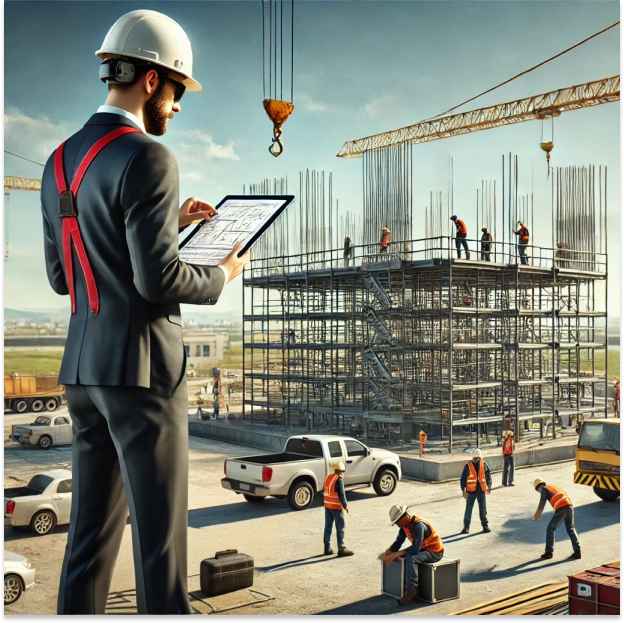How Technology is Transforming Construction Management: Must-Have Tools and Software
How Technology is Transforming Construction Management: Must-Have Tools and Software
Blog Article
[caption id="" align="aligncenter" width="624"] construction management services[/caption]
construction management services[/caption]
The construction industry is evolving rapidly, and technology is at the forefront of this transformation. From project planning and risk management to communication and quality control, construction management software and tools are revolutionizing how projects are executed. Whether you’re managing a residential build, a commercial project, or large-scale infrastructure, embracing the right technology can significantly improve efficiency, reduce costs, and ensure timely delivery. Here are the must-have tools and software that are reshaping construction management in 2025.
1. Project Management Software: Streamlining Operations
Managing multiple construction projects simultaneously can be complex, but project management software simplifies it by centralizing data and streamlining communication. Tools like Procore, Buildertrend, and CoConstruct allow managers to track project schedules, allocate resources, manage budgets, and collaborate in real time.
Benefits:
Improved communication among team members
Real-time project tracking and updates
Budget management and cost control
Document sharing and storage in one platform
2. Building Information Modeling (BIM): Enhanced Visualization and Planning
BIM software like Autodesk Revit and Navisworks provides 3D visualization of a construction project before the first brick is laid. It enables project managers to foresee potential design conflicts, optimize layouts, and reduce costly errors.
Benefits:
Accurate 3D models and simulations
Early detection of design clashes
Improved collaboration between architects, engineers, and contractors
Data-driven decision-making throughout the project lifecycle
3. Drone Technology: Efficient Site Monitoring and Data Collection
Drones are becoming indispensable in construction management, offering aerial site views and real-time data collection. They can conduct site inspections, monitor progress, and assess safety risks without the need for manual intervention.
Popular Drone Software: DroneDeploy, Pix4D, and DJI Terra
Benefits:
Real-time aerial monitoring of construction sites
Faster and safer site inspections
Accurate mapping and surveying
Data-driven insights for project reporting
4. Construction Management Apps: On-the-Go Solutions
Mobile apps are essential for on-site project managers who need instant access to project data and communication tools. Apps like Fieldwire, PlanGrid, and Raken provide real-time updates, task tracking, and reporting directly from the job site.
Benefits:
Instant access to blueprints and plans
Real-time updates on project progress
Incident reporting and safety tracking
Enhanced communication with remote teams
5. AI and Machine Learning: Predictive Analytics for Risk Management
AI-powered tools are transforming how construction management companies identify risks and predict potential delays. Software like SmartPM, nPlan, and ALICE Technologies use machine learning algorithms to analyze project data, forecast risks, and optimize schedules.
Benefits:
Predictive analytics for better risk management
Optimized scheduling and resource allocation
Automated reporting and data analysis
Enhanced decision-making through actionable insights
6. Augmented Reality (AR) and Virtual Reality (VR): Immersive Design and Training
AR and VR are redefining how construction projects are visualized and executed. AR/VR software like HoloBuilder and IrisVR enables project managers to create immersive walkthroughs, conduct virtual site inspections, and train workers in simulated environments.
Benefits:
Realistic project visualization before construction
Virtual safety training for workers
Early detection of design flaws
Client presentations using interactive 3D models
7. Document Management Systems: Organized and Accessible Data
Construction projects generate vast amounts of paperwork — from contracts and permits to blueprints and invoices. Document management systems like Procore, Aconex, and Bluebeam help organize, store, and share documents securely, reducing administrative burdens and ensuring data accuracy.
Benefits:
Centralized storage for project documents
Easy access to files and blueprints
Reduced paperwork and manual data entry
Enhanced security and data backup
8. Cloud-Based Collaboration Tools: Seamless Communication
In today’s digital landscape, cloud-based tools are essential for construction management consulting firms that need to keep stakeholders connected. Platforms like Microsoft Teams, Slack, and Zoom enable instant messaging, video conferencing, and document sharing, ensuring all project members stay in sync.
Benefits:
Real-time communication with remote teams
Instant access to project updates and files
Efficient project coordination and reporting
Reduced communication gaps and misunderstandings
9. Construction Accounting Software: Accurate Financial Management
Managing project budgets effectively is a critical component of construction management solutions. Tools like copyright, Sage 300 Construction, and Foundation streamline accounting, payroll, and expense tracking, ensuring accurate financial reporting.
Benefits:
Real-time expense tracking and budget management
Automated payroll processing
Financial forecasting and reporting
Reduced financial discrepancies and errors
10. Safety Management Software: Ensuring On-Site Safety
Safety is a top priority in general contractor services, and technology is playing a pivotal role in maintaining safe work environments. Safety management tools like SafetyCulture, SiteDocs, and eCompliance help monitor safety protocols, conduct inspections, and manage incident reports effectively.
Benefits:
Digital safety checklists and inspections
Automated incident reporting
Real-time safety alerts and notifications
Compliance tracking and safety training
The Future of Construction Management: Integrating Technology for Success
As we move further into 2025, the integration of advanced tools and software is no longer optional but essential for effective construction project management. From drone technology and AI-driven analytics to cloud-based collaboration and AR/VR simulations, these tools not only streamline operations but also improve project outcomes, reduce costs, and mitigate risks.
For construction management companies looking to stay competitive, investing in the right technology is a strategic move that ensures projects are completed on time, within budget, and to the highest standards of quality.
Report this page